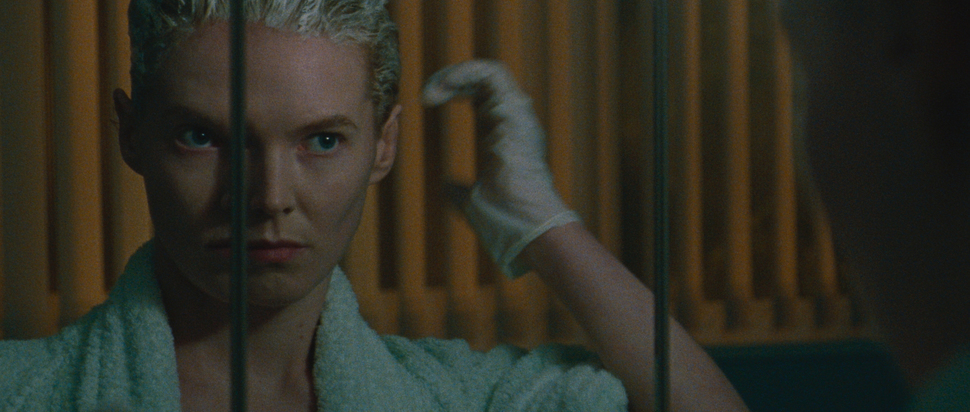Blue Jean
Georgia Oakley's devastating debut feature concerns a lesbian PE teacher trying to navigate her personal and professional life in the face of Section 28
It’s 1988, and bulletins report on Clause 28, which would see the prohibition of any “promotion” of homosexuality as an acceptable “pretended family relationship” by local authorities in Britain, including schools. Politicians on TV and radio – including Margaret Thatcher – justify the measures on grounds of tackling so-called deviancy. Section 28, as it’s more widely known, wouldn’t be repealed in Scotland, England and Wales until the early 2000s. Among its many repercussions were the ways in which organisations created to support vulnerable LGBTQ+ individuals were pushed into self-censoring or outright closure.
The soulful, textured debut feature of writer-director Georgia Oakley, Blue Jean explores the self-censorship of someone in an authority role hiding their homosexuality as the clause is introduced, when there’s heightened discussion of the visibility of queer lifestyles, exposing prejudices among staffroom colleagues who would usually just deal in idle chatter. P.E. teacher Jean (Rosy McEwan), who was previously married, works at a Tyneside secondary school a fair drive from her home, to keep her professional and personal lives fully apart. That personal life includes girlfriend Viv (Kerrie Hayes) and their circle of lesbian friends.
Jean’s professional life includes coaching the netball team, the newest recruit being a new student from Scotland, Lois (Lucy Halliday, a force of nature in her screen debut), who’s picked on by peers and made the subject of other teachers’ gossip. When Lois appears at the lesbian bar Jean and Viv frequent, it seems set to spell disaster for Jean’s job and veneer of acceptability.
The role of Jean is a tricky one. At one point, the more openly warm Viv appropriately describes her as being like a deer in headlights. There’s an inherent passivity to the character, but the magnetic McEwen ensures with every tiny gesture that it’s always clear her non-committal, sometimes unsympathetic responses to developments are down to fear rather than compliance. Early on, she questions Viv’s belief that everything is political, with the film’s eventual central dilemma being a near-perfect encapsulation of the personal and political always being intertwined; when a student is the victim of homophobic bullying, how can a teacher support them while protecting themselves?
Blue Jean's script can occasionally veer towards the schematic. While it's a pleasure to see two great performers bounce off one another, by the time it comes to the fourth or fifth conversation between Jean and Viv about the former’s discomfort, with the latter displaying a more liberated outwardly persona, it seems like runtime padding with a playing of the same notes. These discussions of queer identity would feel less repetitive if new layers of characterisation were revealed.
The cumulative experience is really quite special, though. Izabella Curry’s editing and the intimate framing by cinematographer Victor Seguin lead to striking sequences throughout, both in the claustrophobic school and more unshackled settings of working-class queer communal spaces. And on that latter note, how nice it is for a film – even with the still-all-too-relevant looming spectre of Tory oppression – to so lovingly present hope springing from grassroots community support.
Blue Jean is released 10 Feb by Altitude; certificate 15
Scroll on for an interview with Blue Jean director Georgia Oakley, or listen to the latest episode of The Cineskinny podcast for a discussion on the film and UK cinema's reflections on the Thatcher years
